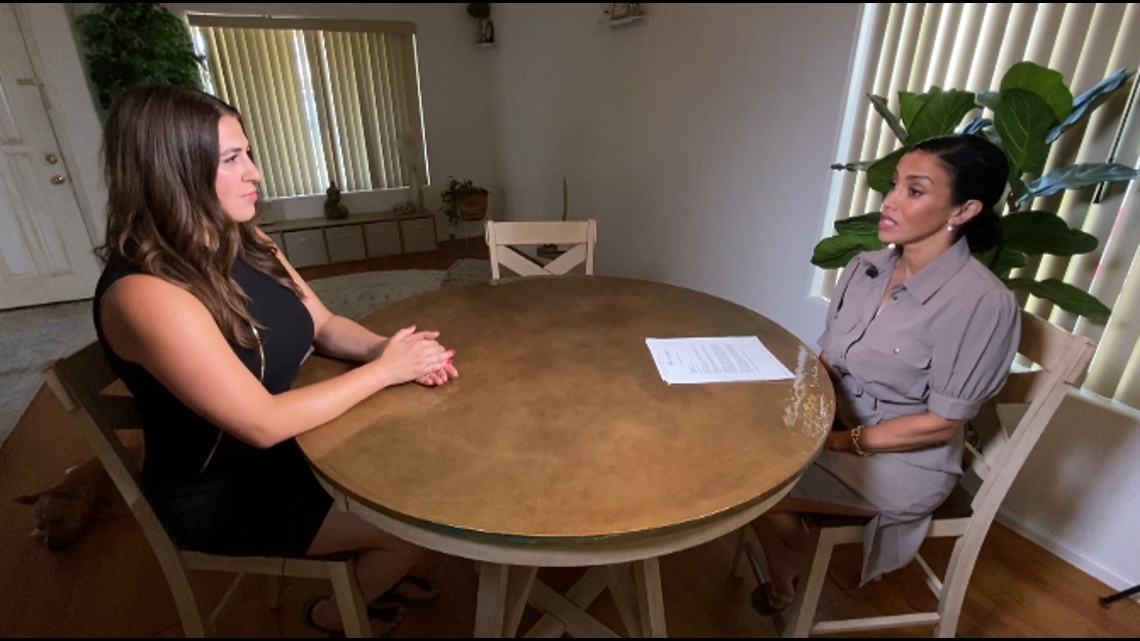For several years, the I-Team has exposed bad outcomes from gaps in Arizona’s mental healthcare system, from homelessness to incarceration to violence and even death
PHOENIX — It’s not always easy for Seetha DeMarco to keep an eye on her son, Joey, but her world revolves around doing it.
Joey is 25, but DeMarco is his legal guardian. He’s being treated for a schizophrenia spectrum disorder and receives benefits for a serious mental illness in Arizona.
“[If] someone’s not treated with these types of diagnoses, it’s very dangerous,” DeMarco said.
He lives with her full-time in the East Valley, even though at one point back in 2019, things got scary.
“He thought the Mexican Mafia was after him,” DeMarco explained. “He had gotten a hold of a gun and he forced both me and his 16-year-old sister out of the house.”
A Chandler police report confirmed what happened.
“And I was terrified to call the police because he had a gun and I thought they’re gonna kill him,” she said. “But I did.”
Joey was arrested, released and eventually became homeless.
It took DeMarco months to find him and try to help him.
Later, he started receiving treatment and tried two different state-licensed behavioral health homes, known as behavioral health residential facilities or BHRFs.
“The clinic was not coordinating care with the staff as they should have,” DeMarco explained. “And it was just a horrible mess.”
She expressed concerns over his diet, hygiene and a lack of therapeutic activities.
“He wasn’t receiving that level of support, or even close to it,” she added.
When all of DeMarco’s complaints to the state went unanswered or unfounded, she decided to take Joey in with her. That, she says, was about a year ago.
“Do you feel safe with your son at home?” asked the I-Team’s Erica Stapleton.
“His heart and soul? I don’t believe that he would ever hurt anyone,” said DeMarco. “The mental health, the psychosis changes. People and parents do get killed… and it’s scary.”
‘Moms have become the new asylum’
For several years, the I-Team has exposed bad outcomes from gaps in Arizona’s mental healthcare system, from homelessness to incarceration to violence and even death.
Some parents will do anything to help their adult children who are among the sickest and they want the state to step up, too.
“Moms have become the new asylum,” said Beth Pera.
Beth Pera is a member of Arizona Mad Moms, a growing group that pushes lawmakers, in part, for better services and more oversight when it comes to Arizona’s behavioral healthcare system. Pera has navigated the system extensively with her son, Nick.
“We call it ‘mom dumping,'” Pera said.
“Mom dumping,” according to advocates, is when families are taking in their loved one with a serious mental illness because services from the state aren’t working for them.
“These people are going to be in jail or homeless or dead,” Pera said. “And they count. They matter. My son matters.”
In the past year and a half, the Mad Moms group has grown to more than 500 parents, siblings and caretakers of a loved one with a serious mental illness – many of whom have experienced some form of “mom-dumping.”
“It’s because there’s not enough funding,” Pera said. “Because they don’t think, really believe people are going to get well. And they see them as throwaway people.”
Pera’s son also lives at home with her after she pulled him out of a state-licensed home.
“I had seen residents go from doing pretty good in the beginning, getting better, just deteriorate,” she shared.
She’s seen firsthand that there aren’t a lot of places for someone with a serious mental illness to go.
According to an AHCCCS report from 2024, the housing waitlist for someone with a serious mental illness was more than 5-thousand people. More than half of those people were on the waitlist for a year or longer.
There aren’t always enough psychiatric hospital beds for the sickest patients and Arizona doesn’t have any secured residential facilities.
“I have made serious concessions for him,” said DeMarco. “To be able to stay home and be safe.”
She had to change her career and said she now works from home for less pay.
“It’s very, very stressful,” she said. “And it can be scary sometimes. But there isn’t another option. There just isn’t.”
AHCCCS declined an interview for this report.

